Tea or coffee? Look at the changes in the history of British drinks, the struggle for supremacy of tea coffee!
For professional baristas, please follow the coffee workshop (Wechat official account cafe_style)
For many years, Britain's national image has been inseparable from tea. When most people think of England, they think of afternoon tea. However, this impression may be out of date, because after the new millennium, more and more British people have given up their "quintessence" tea and joined the camp of coffee lovers. According to the National Food Research (National Food Survey), young people in contemporary Britain prefer coffee to traditional tea. At present, the number of young Britons between the ages of 18 and 24 who like to drink tea is only about half that of their parents.
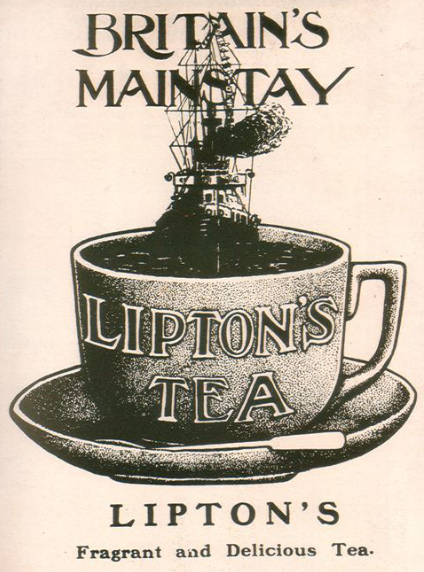
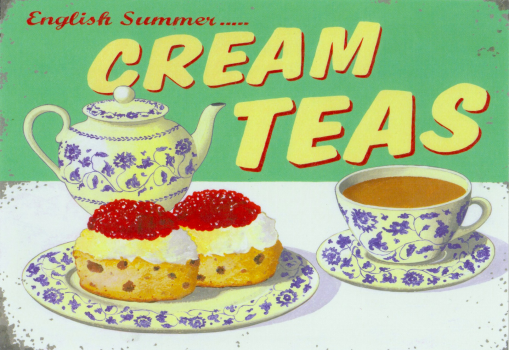
According to the survey, the peak of tea drinking in Britain occurred before and after World War II. Whether in the Great Depression of the economic crisis, the insecurity brought by the war, or the prosperity of post-war reconstruction, black tea has brought comfort and encouragement to countless people. However, since the 1970s, the British love of tea began to "reduce fever". With the popularity of American TV dramas in the 1990s and the continuous infiltration of the social atmosphere of France, Italy and other European neighbors after the establishment of the European Union, young people began to "betray" black tea, causing many old-school Britons to cry out. Coffee from continental Europe has "invaded" the British Isles!

However, if you look at British history, you will find that the successive victories of coffee among young British consumers today is not its invasion of the black tea camp, but a movement to "recover lost territory" long before black tea became the quintessence of Britain. Coffee ruled Britain for nearly two centuries!
Coffee was introduced into Europe from the Ottoman Empire. Compared with the frontline German-Austrian regions that deal with the Islamic world, the British in the western corner of Eurasia drink coffee at least half a century longer than the Germans. Britain's earliest coffee smelled in the university city of Oxford, the cradle of the British prime minister, Balliol College. It is said that when William Ludd, Archbishop of Canterbury, was president of Oxford University, he sent scholars to Crete for archaeological exchanges, and returned scholars also brought popular Ottoman coffee to Oxford. It can be said that the spread of coffee to Britain is the product of academic exchange, which sounds quite elegant and noble, in sharp contrast to the flesh-and-blood attack and defense war in Vienna when coffee was introduced into Central Europe.
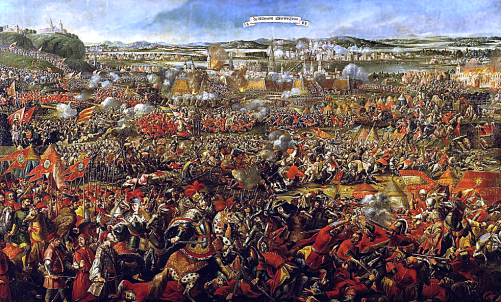
(coffee is said to have entered Europe because Christian troops accidentally seized coffee drunk by Ottoman officers after they managed to defend Vienna from the Ottoman attack.)
In 1650, a Jewish businessman opened Britain's first coffee shop in Oxford, which soon became a popular gathering place for students and professors. cafes in the university town began to open like bamboo shoots after a spring rain, and the Queen's Lane Cafe (Queen's Lane Coffee House), which was born in 1654, has been preserved today. The first coffee shop in London was born in 1652, founded by a marine merchant who specializes in reselling Turkish goods. At that time, the parliamentary faction led by Cromwell won the British Civil War, Britain briefly became a republic, the emergence of cafes was adapting to the drastic changes in the social atmosphere, and coffee culture began to infiltrate British society rapidly. During this period, membership cafes appeared, which made this place beyond its original meaning and became a place for information exchange and party dissent. Royalist cafes, revolutionary cafes, journalist cafes, aristocratic cafes, sailor cafes, scholar cafes and other distinct cafes appear on the streets of London at the same time. There are spies, assassins, fraudsters, speculators and careerists shuttling back and forth, staging countless legends.
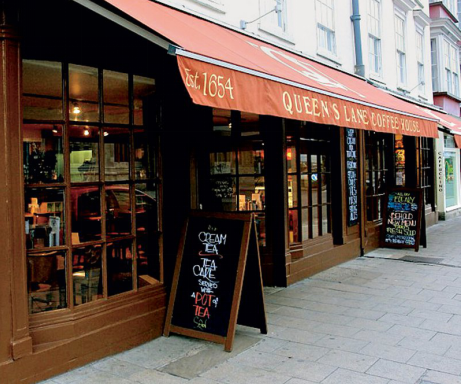
(the Queen's Lane Cafe is still a popular destination for students and tourists.)
However, the upsurge of the first generation of cafes can be regarded as twists and turns. First of all, coffee from Africa and the Middle East needs to travel to England by sea and land. the long-standing mutual hostility between the Ottoman Empire and the Christian world, the constant raging pirates in the Mediterranean and the instability of coffee production have determined that the "coffee road" at sea is by no means smooth, so the price of coffee remains high and is a fashion treasure affordable to the more affluent classes such as aristocrats, businessmen and scholars. At the same time, political stability did not last long after the British Civil War. The dynasty was restored soon after Cromwell's death, followed by several political disturbances before and after the Glorious Revolution, and the terrible large-scale plague and nightmares of the London fire broke out in 1665 and 1666. All these have brought the coffee craze in Britain to a low ebb several times. It was not until the Georgian era that British coffee culture ushered in its first golden age. At that time, with the stable political situation, developed commerce and growing social wealth, the fashionable and elegant custom of drinking coffee was once again advocated by more and more people. More importantly, the increasingly powerful British East India Company has mastered important coffee lanes, and coffee from the Middle East and Africa has begun to flow into Britain, and when there is plenty of supply, the civilian class can also enjoy coffee. As a result, cafes blossomed in the streets of London, and by the early 18th century, there were more than 3000 cafes in the city. London became an out-and-out coffee capital, and its statement even spread to Istanbul. It amazed the Ottomans who were the first to drink coffee.
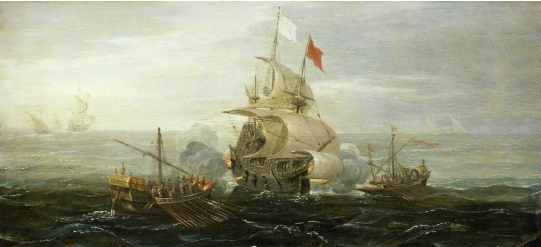
(Barbary pirates fight fiercely with French ships, and transporting supplies in these pirate-infested waters is a huge venture.)
What no one expected, however, was that by the mid-18th century, tea drinks from the far East suddenly began to attack coffee and beat the latter out of their helmets and armour. It turns out that the new waterway of the British East India Company has been able to guarantee the amount of tea imported from Guangdong, China, and has begun to try to plant tea trees on a large scale in India. Tea, which was originally enjoyed by a very small number of royal families and aristocrats, came into the eyes of the general public. More importantly, the Dutch East India Company has gained a foothold in Indonesia and has succeeded in growing coffee on a large scale in Java. Java coffee was extremely cheap and soon occupied the vast market in continental Europe, which dealt a huge blow to the traditional coffee trade of the British East India Company. When it is difficult for the latter to make a breakthrough in the coffee market, they naturally focus on tea. In order to ensure commercial interests, the British Government, which pursued mercantilism at that time, substantially reduced the tariff on black tea. Interestingly, I do not know whether it is really out of personal love or in the interests of the country, the aristocratic socialites and ladies headed by Queen Victoria have also begun to spare no effort for the platform of black tea culture, not only to make tea a beverage loved by the whole people, but also to create a series of afternoon tea culture with numerous foods and complicated etiquette. So all over Britain, from top to bottom, they abandoned coffee to drink black tea, and even became a country of black tea, turning tea culture into a national business card.
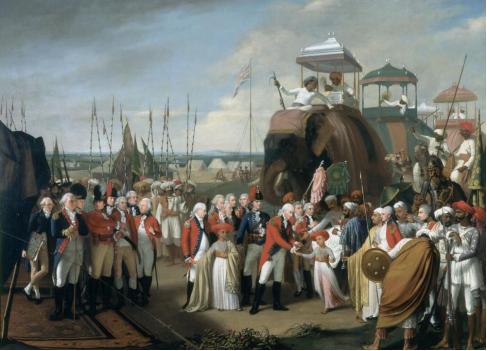
(the East India Company, which is rich as a rival)
After more than a century, coffee has sprung up again in the British Isles, bringing back the younger generation who are tired of tea. One of the important reasons why Britons have become unfond of tea may be the red tape of drinking tea, which is sought after by countless foreign tourists-drinking a formal afternoon tea not only has a pretentious need, but also needs to be enjoyed slowly. At the same time, modern coffee machines make long-time processes such as grinding, filtration and siphon in coffee shops fast, convenient and cost-effective, which meets the fast-paced needs of modern people. In addition, the various details of coffee technology are also packaged by countless film and television literary works sometimes romantic, sometimes full of craftsman spirit, so that a large number of consumers are willing to pay for it. In addition to the chain coffee shops that provide fast and quality service (represented by Costa, Coffe Nero in the UK and Starbucks in the United States), there are a large number of independent cafes that focus on the personal style of baristas. People are willing to choose a cafe on all kinds of occasions, such as dating, gathering with friends, even business meetings and working alone. In today's digital age, there are many freelancers who offer free wifi and quiet coffee shops, which are also the best places for them to work. There are already thousands of chain coffee shops in London alone, and the market company estimates that Britons currently have about 70 million cups of coffee a day, spending an average of 3.69 pounds per person a day. This scale has naturally surpassed the golden age of coffee in the 18th century, so it seems that the "black tea kingdom" has been completely under the new offensive of coffee.
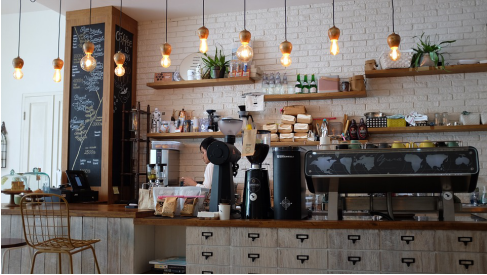
However, it seems unlikely that this situation will last long. In recent years, matcha from Japan has become more and more popular in Britain, and Chinese tea, which fascinated the British two hundred years ago, has also been revived. Oolong, Pu'er and other Chinese teas that have been newly packaged have appeared in more and more British teahouses, and the tea market is becoming more and more diversified. Perhaps this new wave of westerly winds is spreading eastward, which can bring tea back to the city.
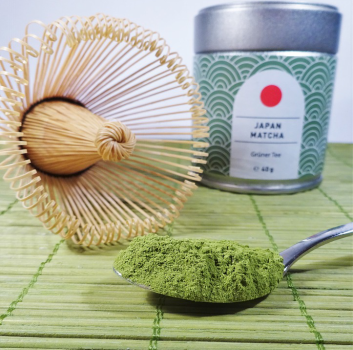
Important Notice :
前街咖啡 FrontStreet Coffee has moved to new addredd:
FrontStreet Coffee Address: 315,Donghua East Road,GuangZhou
Tel:020 38364473
- Prev

Discover the charm of Taiwan's coffee culture: from rich and diverse flavors to various possibilities.
Professional barista communication Please follow the coffee workshop (Wechat official account cafe_style) if you want to move steadily into the future, you must first get to know yourself. If you were asked to give your first impression of Taiwan's coffee culture, what would you think of? Will it be a personality cafe with ever-changing styles, or coffee in convenience stores all over the street, or will it be close to the Grand Slam world championship record? This year
- Next
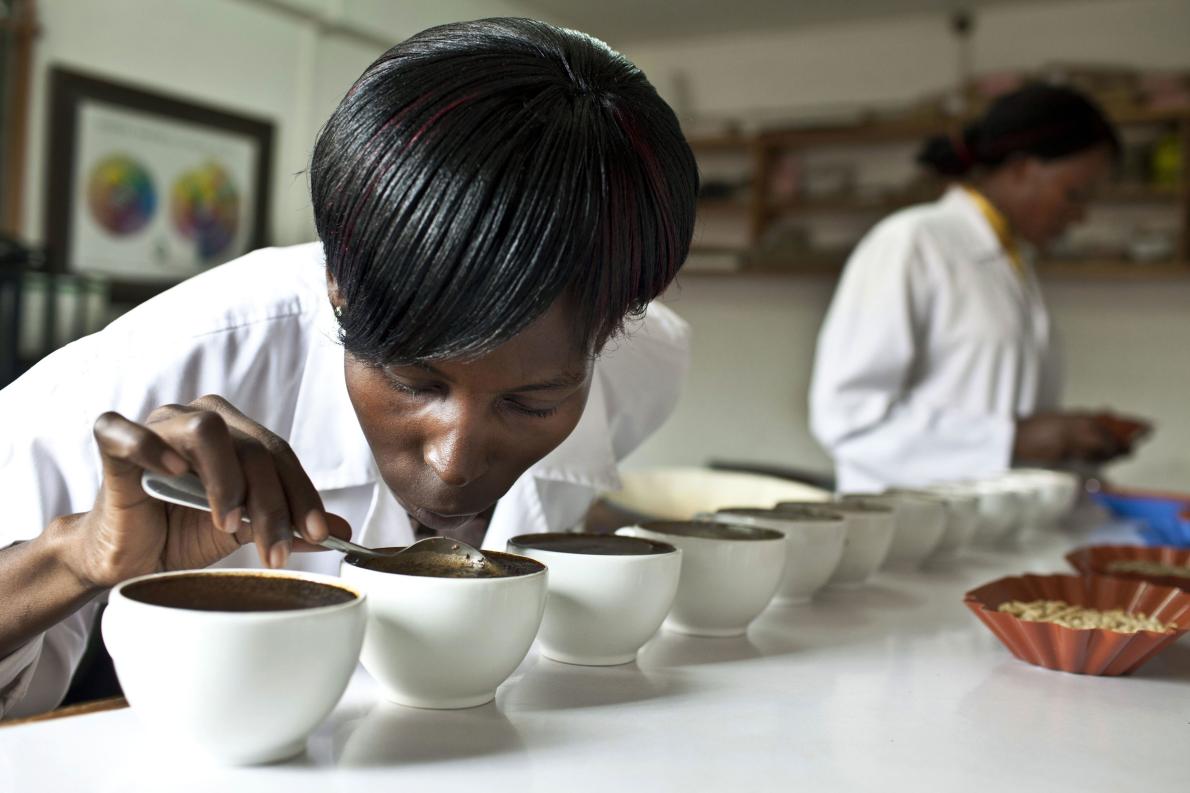
Story of Coffee producing area | how can Ugandan coffee farmers save themselves in the face of many difficulties?
For professional baristas, please follow the coffee workshop (Wechat official account cafe_style) Uganda ranks eighth in the world in coffee production, on a par with Peru and second in Africa after Ethiopia. Each year, Uganda usually produces 3 million to 4 million bags of 60 kg coffee, accounting for only 2-3% of global production, far less than Brazil (55 million bags) or Vietnam
Related
- How did the Salvadoran coffee industry develop in Central America?
- What exactly does the golden cup extraction of coffee mean?
- The Origin of Coffee flower
- [2023 Starbucks World Earth Day] there are more meaningful things besides free Starbucks coffee!
- What kind of coffee is there in Spain? 9 Flavors of Spanish Coffee
- Aromatic African coffee| Kenya's coffee culture and historical production area
- Liberica Coffee Bean knowledge: the characteristics of Liberian Coffee beans of the three original species of Coffee beans
- The origin and formula of Spanish latte introduces the taste characteristics of Bombon coffee in Valencia, Spain.
- How to adjust the solution of over-extracted coffee
- What is the tasting period of coffee beans? What is the period of coffee and beans? How should coffee wake up and raise beans?

